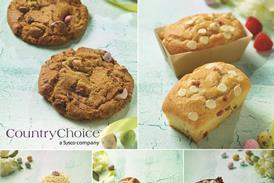Deep discounting isn’t the only way to guarantee strong cheese sales. Sarah Britton looks at how c-stores can offer value without lowering prices
Top tips: Differentiate yourself
Dragon Rouge senior consultant Deborah Carter advises c-stores on how to compete with the mults:
- Leverage any local/regional distribution, making it possible to introduce some ‘locally produced, farm shop-style’ lines where the national multiples have little control. This will add interest and a ‘fresh supply’ feel
- Provide smaller portion sizes or resealability so that buying quality cheese becomes more practical for single and older-person households. Don’t forget, the trend towards smaller households is in marked growth
- Do more to encourage cheese snacking with individual snack packs products such as Dairylea Dunkers/Philadelphia Splendips plus kids’ snack packs of BabyBel, Strip Cheese or Cheestrings
- Introduce some different, less well-known brands, perhaps with interesting flavours, textures and origins to add excitement
- Entice customers by offering some different regional cheeses, or perhaps those reflecting the demographic of the community served Polish, Irish, Indian, Greek cheese, for example. This will ensure that your store stands out.
It’s no secret that within the multiples, the cheese category has seen a lot of hard discounting in recent times. But while c-stores can’t necessarily compete on price, there are plenty of other ways to convince consumers that they are getting value for money.
“It’s a battle for convenience stores to compete with the mults on pricing, so price point promotions are not the answer,” says Wyke Farms managing director Richard Clothier.
Instead, he suggests that offering pricemarked packs is a good way to create a perception of value, without lowering prices. “We offer convenience stores flexible price flashing on 200g fixed-weight packs. It gives the price more prominence on pack.”
Dairy Crest also acknowledges the benefits of pricemarking. “We’ve just launched Cathedral City Mature 200g and Extra Mature 200g pricemarked packs for the convenience and wholesale trade, which will secure greater on-shelf visibility and give the consumer confidence that they’re not being overcharged,” says Simon Bradley, Dairy Crest channel director for convenience.
“For the retailer, pricemarked packs attract shoppers to the fixture and provide an improved rate of sale and price perception, allowing them to compete more effectively with major multiples.”
In order to aid c-stores, Dairy Crest also provides smaller case sizes for the convenience channel to help reduce outlay, and the firm is also offering 200g packs of Cathedral City Mature with ‘50% extra free’ to give consumers more for their money.
Kraft is paving the way for c-stores to offer their shoppers a better deal by increasing the size of its smallest packs, but ensuring that shoppers get more cheese for their cash. It has replaced its 125g Philadelphia packs pricemarked at £1.15 to 200g packs pricemarked at £1.45. “Customers are continuing to trade up to bigger packs when purchasing Philadelphia, and changing to the 200g PMP will help retailers to make the most of this growing trend,” says Steve Mounty, director of convenience and distributive at Kraft Foods UK and Ireland. “Customers’ pockets will also benefit, with the 200g pack representing excellent value for money if sold at RRP.”
Encouraging existing customers to buy more cheese is another way to achieve increased sales. On this front, Dairy Crest has introduced 80g trial size packs across Cathedral City Mature, Extra Mature, Mature Lighter and Vintage 20. “This will draw new consumers into the category, encourage shoppers to increase their repertoire and promote trial and repeat purchase,” says Bradley.
Shoppers may also be persuaded to buy more cheese if they are given ideas about different ways to eat it. Deborah Carter, senior consultant at brand agency Dragon Rouge, suggests that shelf-edge labels could be used to better effect by suggesting consumption occasions. “Retailers could experiment with serving messages on shelf strips, such as ‘try me with your favourite Scottish oatcakes’ or ‘delicious melted on toast’, complemented by evocative photography as a recipe suggestion,” she says.
Retailer know-how
With multiples offering deep discounts, forward-thinking independent retailers need to come up with more innovative sales techniques to keep shoppers interested.
Andrew Porter, who owns Creightons of Finaghy, a Eurospar in Belfast, got creative with his cheese offering in order to create a little excitement in his store.
“To try to boost sales, I recently ran a Cheese Week,” he says. “From Monday to Friday, we had three suppliers operating sampling sessions and giving out leaflets with recipe ideas and their company’s story. We ran special offers alongside the activity.”
He claimed that people enjoyed the interaction and the opportunity to taste the products. “Customers like to get something free, but it also encourages extra sales because people try the product. Our cheese sales went up by 54% during Cheese Week and they are still 15% above pre-Cheese Week sales.”
Retailers John Parkinson and Shirley Woodyatt, who run Broadway Premier in Penrhyn Bay, Conwy, have focused on local cheeses in a bid to offer something different.
“I recently bought a whole Llangloffan cheese. I chopped up half of it into blocks and then priced it up, and the following week I prepared the second half. People buy into it because they know they’re getting a good deal.”
John claims that his quirky variants are what keep people coming back for more. “If you’re going to do cheese well then you’ve got to offer people choice. I make sure I vary my offering regularly, so the following week I might sell horseradish Cheddar. I love experimenting with different cheeses, and so do the customers.”
Even if you are stuck for inspiration, you don’t have to look far to find recipes. Cathedral City recently relaunched its consumer website, which boasts plenty of serving suggestions for its cheese, while the Pilgrims Choice website has also seen a revamp in recent months and has an equally impressive array of recipes.
Of course, in order to encourage more people to buy into cheese, products must be clearly visible. While products available in tub format, such as Philadelphia, have the advantage that they stack well, with their branding clearly communicated on the sides of packs, stacking other cheeses means hiding their branding and results in a messy display. “Adding merchandising units for products that currently don’t display well can help to organise the category better and achieve better stand out,” points out Carter.
“Shelf-ready packaging can really help items to stand out the bright colours help to create interest and the segmentation makes it easier to differentiate between different brands,” adds Bel UK insights and category manager Richard Parry.
Different materials such as waxed paper, matt card, dark or more sophisticated graphics can also add interest to the category, claims Carter.
“Budgens’ own-label Cheddar effectively uses a friendly photographic cow against a strong colour background to reflect origins and better communicate quality. This appears to be selling better than the ‘yellow blocks’ with commodity labels that make little reference to any dairy heritage,” she adds.
Taking a similar approach, Wyke Farms recently unveiled a fresh new packaging design for its entire range. The updated designs show the familiar cow and tree images printed in gloss, reinforcing the brand’s message of provenance.
“We’re also working on shelf-ready packs to make our point-of-sale more attractive,” says Clothier. “We’re looking to add a bit of theatre to them to reflect the brand’s provenance.”
In the past, honing in on the origins of a cheese has been a key sales tool, but with purse strings pulled tight, it begs the question: does provenance still sell?
Clothier concedes that brands whose strength lies in provenance have been hit in recent times. “I don’t think the high number of cheese promotions has helped the value of cheese. People have got used to buying cheese on deal and it’s been damaging to the category.”
However, he claims that Wyke has maintained much of its customer base. “We’ve still seen good brand loyalty even though it’s been tough, so people still buy into provenance and quality. The switching data shows we’ve retained many shoppers.”
Provenance is still important to the consumer, agrees Dairy Crest’s Bradley. “However, this has reduced slightly during the current economic climate when there have been a large number of promotions available to them.”
Parry agrees that provenance does not carry the same weight that it did in the past. “Some people still buy into it, but the recession has had an impact on provenance. When these products were sold at a premium, a number of people switched out of them.”
Nevertheless, Carter supports the notion that brands with provenance should remain confident. “In the c-store environment, cheese brands can’t afford to be apologetic, especially when not being price promoted. So where they can dial up their heritage and show what they stand for, then that’s all well and good.”
New ideas: Going up
In a bid to increase consumption of more premium cheese, suppliers have been experimenting with different product formats.
Within the past six months, Boursin normally associated with formal eating occasions such as cheese boards has been launched in a Mini format. This means that the product can be used easily as a meal accompaniment to more everyday foods, such as pasta and jacket potatoes. Available in a convenient resealable pot, the products are set to appeal to a wider audience than their bigger, blockier brother.
Adams Foods has also taken cheese variants more usually associated with posh nosh and made them more accessible with the launch of its Speciality collection. “Speciality blended cheese is still often perceived by the consumer as an ‘occasional’ and ‘indulgent’ purchase,” says Pilgrims Choice marketing controller Hannah Jenkins. “Our new launch looks to change perceptions and re-energise the cheese category, through educating and encouraging consumers to enjoy a little indulgence every day.”
So while deep discounting isn’t an option for indies, making the most of provenance, pricemarking and packaging will ensure that c-stores generate a decent return on their cheese category.
Ones to watch…
Jingle Bels Christmas-themed six- and 12-packs of Mini Babybel are now available for retailers looking to add some festive fun to their shelves. Last year the seasonal packs, featuring Santa and reindeer designs, contributed to a 46% increase in Mini Babybel sales. Manufacturer Bel UK is confident that the packaging will be a hit with customers again this year. tel: 01622 774800
A perfect blend Adams Foods is hoping that consumers will indulge in its Pilgrims Choice Speciality Cheese range. The selection of four blended cheeses includes Wensleydale with Lemon & Lime, and Smokey Cheddar variants. And for shoppers who are watching their figures, the company plans to launch a lighter Pilgrims Choice variant in the new year. rrp: £1.99 tel: 01963 828828
A change of heart In order to make heart healthy Leskol appeal to a wider audience, Wyke Farms has rebranded the low-fat cheese alternative as Super Light. A heart-shaped parchment panel in the centre of pack conveys the product’s health benefits, while the pack’s deep pink colour is expected to appeal to females. Super Light has about 90% less fat than regular mature Cheddar. tel: 01749 813614
Tinsel time Dairy Crest is giving Cathedral City a touch of festive magic with packs depicting a winter scene. It is hoped that the packaging will help to evoke an emotional connection between the brand and consumers. This will be further enhanced through Cathedral City’s new website, which offers a tour around a virtual cathedral city and recipe ideas. tel: 01372 472200
Slam dunk Kraft has netted extra points with mums by removing the artificial colours, flavours and preservatives from Dairylea Dunkers. “The sub-brand has performed well in the impulse sector over the past 12 months, with public data showing a value of £6.5m and growth that outperforms the market at 4.3%,” says the company’s Steve Mounty. tel: 01242 236101





























![Muller_Bliss_Whipped_Elevated_Lemon_Meringue_Pie_FF[87]](https://d2dyh47stel7w4.cloudfront.net/Pictures/380x253/2/2/2/352222_muller_bliss_whipped_elevated_lemon_meringue_pie_ff87_462652_crop.jpg)














No comments yet